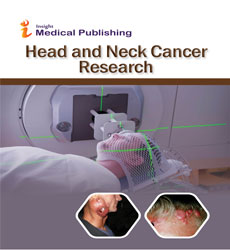Muscle Tension Dysphonia: Experience from a conflict zone
Raj Tajamul Hussain
Government Medical College, Srinagar, India
Published Date: 2022-07-21Abstract
Objective: We sought to investigate the frequency of stress among OPD attending Kashmiri population diagnosed with muscle tension dysphonia (MTD) and measure the subjective effects of voice therapy in the management of muscle tension dysphonia.
Methods: 72 subjects that presented to ENT & HNS OPD with the change of voice were prospectively evaluated and underwent a comprehensive otolaryngological examination. Patients diagnosed as having MTD were provided a questionnaire that was divided into three parts: First part addressed the identification of the subject (age, gender, geography, profession) and included an assessment of perceived stress using the Perceived Stress Scale-10. In the second part, the patients had to evaluate their vocal quality according to parameters of GRBAS 4-point rating scale (Grade, Roughness, Breathiness, Asthenia, Strain), each graded on a rating scale of 0-3(0- normal; 1-slight; 2-moderate; 3-severe), before and after the therapy. In the third part, the subjects also had to answer the VHI-10 (Voice Handicap Index) and the results were compared with those obtained at the assessment before the start of the therapy.
Results: The mean age of the cohort was 30.31±07.43 (age range, 12-71) and all of them were native Kashmiris. As expected, the majority of subjects were women (43 patients). In the pooled data set, females had numerically higher PSS-10 scores than males. For females, the average stress score was M = 18.6 and for males, the average stress score was M = 16.65. In a healthy population, the average PSS stress score is reported to be 13.7 (SD=6.6) for females and 12.1 (SD=5.9) for males. At the Wilcoxon test for paired data, we observed a significant difference between the VHI pretreatment (mean=19.75) and the VHI post-treatment, that is at the time of this study (mean=9.73; P =0.017). The grade (G) was measured in terms of improvement of the vocal quality compared with before therapy and the patients show a high degree of satisfaction (mean=0.65). When it comes to roughness (R) and breathiness (B), the patients note that their voice is rarely rough (mean =0.62) and even less breathy (median =0.44). Patients also noted improvement in other parameters of GRBAS scale.
Conclusions: Stress is pervasive, persistent, and nearly unavoidable in modern life. The decades-old perplexing and mind baffling pandemonium hovering around the Kashmiri population has had a tremendous impression on the psychological development of people in this region. A cautious conclusion is that stress may play a significant role in the upkeep of MTD. MTD needs to be approached in a multidisciplinary setting where close cooperation between a laryngologist, a speech-language pathologist, and a psychologist is possible.
Open Access Journals
- Aquaculture & Veterinary Science
- Chemistry & Chemical Sciences
- Clinical Sciences
- Engineering
- General Science
- Genetics & Molecular Biology
- Health Care & Nursing
- Immunology & Microbiology
- Materials Science
- Mathematics & Physics
- Medical Sciences
- Neurology & Psychiatry
- Oncology & Cancer Science
- Pharmaceutical Sciences
